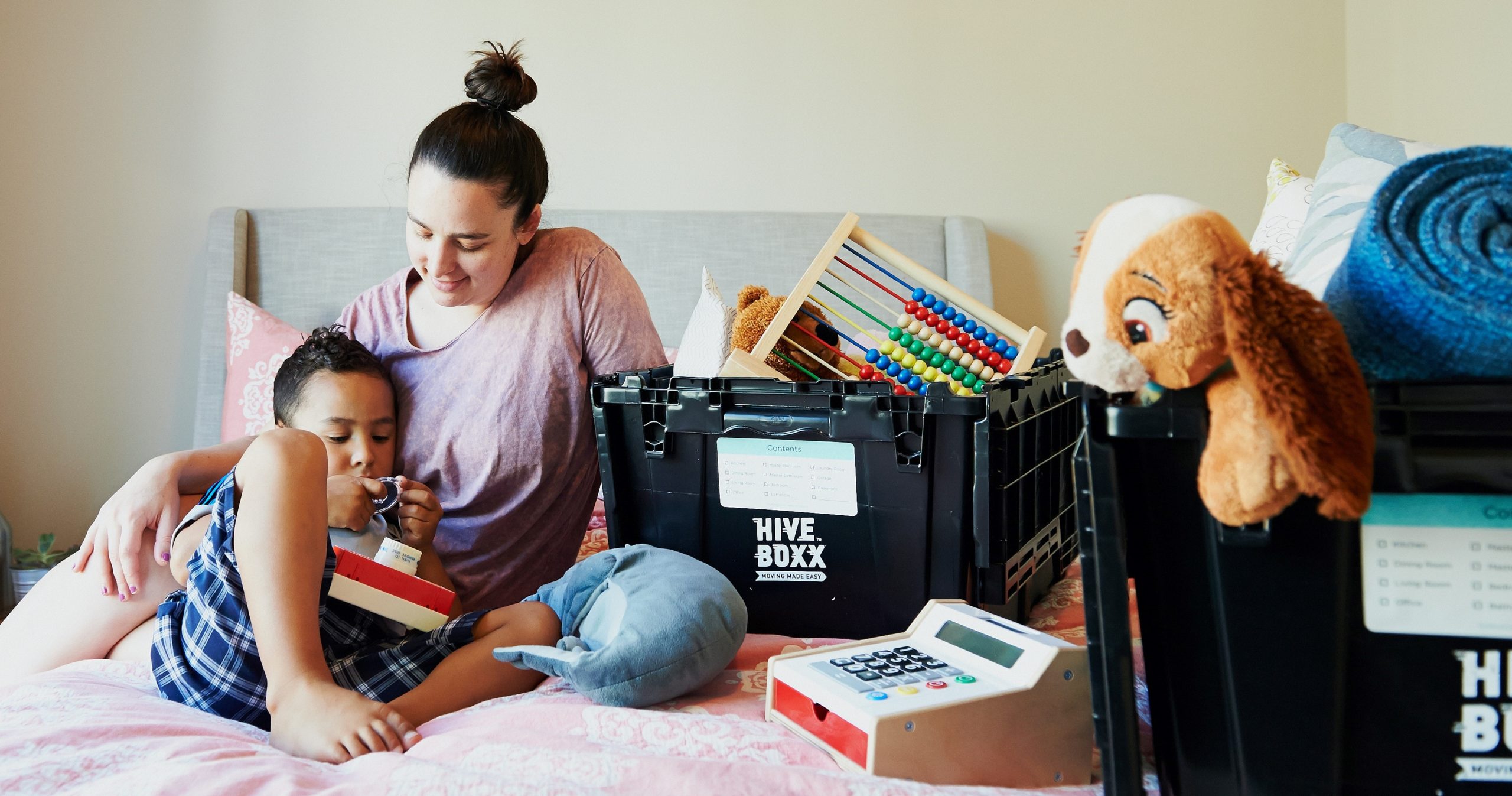
by rossanahead | Feb 7, 2017 | Business Tips, career, family
Pursuing a career or managing a business while raising a family puts unbelievable demands and pressure on women, and if one is not careful, this can lead to serious health issues.
Needless to say, we must never put our health and well-being at the bottom of our list of priorities. Always keep in mind that a healthy body is key to enabling you to carry out all of your daily tasks and responsibilities. As inspirational speaker Joyce Meyer put it: “I believe that the greatest gift you can give your family and the world is a healthy you.”
The good news is that with time management, you can always fit some exercise into your hectic schedule. Get as much physical activity in your work and home life as you can, and you’ll soon see an improvement in your stamina, productivity, and energy levels—guaranteed!
Wake up earlier
Try getting up earlier than usual on most days for some quiet “me time” and about 15 to 30 minutes of exercise. To ensure you focus on yourself during this period, prepare the breakfast and other needs of your children the night before. When the kids finally wake up, you’ve already worked up a sweat or enjoyed an invigorating run around the neighborhood.
Adopt an efficient exercise plan
Choose a workout program that can be performed quickly with little preparation, but yields maximum results in a shorter period of time. With such an exercise routine, it’s easy to sneak in your moves anytime and anywhere. Running and high-intensity workouts are some exercises that can be a good fit for your lifestyle.
Use what’s available
Whether you are trying to lull your baby to sleep at home or finishing paperwork at the office, use the things and furniture around you to reach your fitness goals. For instance, use your chair to perform stretching or bending exercises. Or you can invest in a yoga mat and do some planking positions or stretching exercises. And, yes, you can do this at the office, too.
Invest in dumbbells, bands, jump ropes
These pieces of exercise equipment can help speed up your heart rate and improve your blood circulation. While at home watching TV, pick up your dumbbells during commercial breaks and just flex your muscles. During a 30-minute sitcom, for example, you can get in nine minutes of exercise on average.
Make it fun
Who says exercise has to be boring and tedious? If you are not really into working out, consider other activities that appeal to you. Perhaps you’d like to enroll in a dance class or take yoga lessons or pick up a sports activity like boxing. These days there are tons of opportunities to get fit, so explore what’s out there and give it a try.
Escape during lunch time
Before or after taking your lunch, head out for some brisk walking outdoors for a mental and physical pick-me-up. When you return to work, make sure you have enough supply of fruits and raw vegetables, meal bars, or protein shakes for healthy snacking. This is a neat way to burn off extra calories and fill up on healthy food.
Include your family
What better way to exercise than to invite your husband and kids to join you in your quest for a healthy lifestyle? You’re all not only getting fitter, you’re all also getting closer to one other. Indeed, the family that jogs, walks, bikes, or treks together, stays together.
Photo: Claire Griffiths

by rossanahead | Mar 15, 2012 | children, Education, family, parenting
By Maridol Ranoa-Bismark
“Good evening, Chelo. This is Ben’s mom. Sorry to disturb you at this time but he has not replied to my message. May I call you?”
I sent this panicky text message at 11 p.m. and Chelo, my son’s friend, replied, “Yes Tita.”
After explaining my problem, Chelo must have sprung into action. She contacted her network of friends. My son, who is in his junior year at the University of the Philippines, was on the phone in no time at all! Sorry, he told me. He was in a dead spot at the debate tournament and didn’t get my message. But he’s fine and will be home in an hour or so. I went to sleep smiling, grateful to Chelo. She must have been a mom in her past life.
Now you see why I have the cellphone numbers of around five of my son’s friends stored in my directory. I know deep in my heart that I will need them, especially during the wee hours of the night, and the morning. But having the numbers of your son’s friends is not good enough. You also have to be in good terms with them. It doesn’t take much: a smile, a hello, an offer to give them a ride, and the occasional get-together in your house. This way, they will warm up to you and even tell you untold stories about your son. Is he taking life too seriously? Does he need to loosen up?
Sometimes we parents act like bulls in a China shop. No matter how much we love our children, we do not realize that we’re just charging into their world and breaking valuables along the way. My son’s friends see another side to him that I, his mom, can’t see. They give me a fresh way of looking at my son. They don’t treat him like a son but as an equal. And that’s just what I need, even with my grown-up son. Now, I see him the way his friends do. And I can’t tell you how happy that makes me. Now, I know that I have to advise him to slow down and enjoy his youth, even if I don’t know exactly how he can do that with a worried mom like me around.
If you can’t beat ’em, be friendly with them. I don’t mean attending their parties or joining them for lunch. I mean just letting them know that they can count on you when they need you.
Now that my son is always away from home, spending more time with friends and giving monosyllabic answers to my questions, I know can still have an idea of how he’s doing through the people he hangs around with.
And I can only cross my fingers that he chooses his friends well the way I advised him to. So excuse me while I check my phone directory again and see if I missed any name on the list.
Photo by Tim Marshall on Unsplash

by rossanahead | Mar 9, 2012 | career, children, Education, family, grandparenting, woman
By Jane Santos-Guinto
It was my grandfather Lolo Manny who taught me how to read. He was a journalist for the South China Morning Post, one of Hong Kong’s two largest English newspapers at the time. But on weekends, he would teach me the rudiments of consonant-vowel-consonant blending.
Lolo comes from a family of educators. Both his parents were public school teachers in Agusan del Norte, a province in Southern Philippines. Up until her death in the 1970’s, his mother Lola Victorina was the Dean of the Northern Mindanao Colleges. Dean Francisco Benitez of the University of the Philippines and Sen. Helena Benitez of the Philippine Normal University are distant relatives.
Lolo taught himself how to read when he was barely four in 1938. By eight, he had already read Shakespeare’s entire collection, all volumes of the Encyclopedia for Children, and the Bible. World War II had broken out and children could not go to school, so Lolo Manny took care of his own education. “There was nothing else to do but read,” he would tell us his grandchildren later.
Ironically, Lolo never completed his formal education. He had married quite young, at 20, and when one child came after the next, there really was no time to study. But because he was exceptionally bright, having been a consistent honor student and later a top-scorer in the Civil Service Exam, he went on to have a career that many would consider stellar.
For a while, he taught in a public school like his parents. But when there were too many mouths to feed out of a teacher’s pay, he went to Manila and tried his luck in his real passion—writing. He wrote for the Times Journal with some of the country’s most noteworthy newsmen. At times, it still amazes me to find out whom he had worked with. In 1967, he became the first Filipino journalist to be sent by a local newspaper to Cardiff, England for a certificate course in journalism. For a time, he was one of the writers of Sen. Benigno Aquino Jr., one of the country’s most prominent heroes.
During Martial Law in the 1970’s with eight children, Lolo grabbed the opportunity to work in Hong Kong. This is where he mastered his craft for 20 years or so. And where he would tutor us his first few grandchildren in a tiny tenth floor apartment (or flat as the British-influenced Hong Kong Chinese would call it).
I don’t know if it was out of fear that I learned to read so quickly under my Lolo’s watch. After all, he had a feisty temper, one that I had witnessed on many occasions when I was young. By five, I was writing my own stories. He would bring me to company outings and introduce me to his journalist friends. Having always been on the petite side, I would stretch out my little hand to greet his British colleagues. One time, Lolo said I told them a made-up story, The Monkey and His Briefs.
In the late 1980’s, Lolo went back to the Philippines and became the editor in chief of The Manila Times. After retirement from full-time journalism, Lolo wrote chess columns for the Philippine Star and self-published a weekly chess newsletter for the players of the Quezon City Memorial Circle’s Chess Plaza. These days, he prefers to watch cable movies and exchange jokes with his great grandchild. He has survived three heart attacks and professes he has “no desire for anything else from life.”
Sometimes I wish I were a more diligent pupil; that I followed his advice to read, read, and read more. My knowledge of geography and world affairs is so poor that I squirm every time my 77-year-old Lolo asks his pop-up trivia questions. I salute the University of the Philippines for a great education, but I still feel inept in many areas. There are so many things I wish I knew more about.
I just hope that my own children would have a trickle of Lolo’s brilliance in their blood and pray every day that they would come soon enough to meet my first teacher and greatest mentor, their great grandfather Lolo Manuel O. Benitez, Sr.
Photo by Ian Noble on Unsplash

by rossanahead | Mar 9, 2012 | career, children, Education, family, Mari-an Santos, parenting, woman
By Mari-An C. Santos
Our family is not wealthy. My father is the eldest son among eight of a welder and a housewife who worked part time. Growing up, he worked many odd jobs, mostly selling odds and ends, waiting outside a different church every day, depending on whose Novena day it was, e.g. Quiapo, Baclaran, etc. My mother is the daughter of a district school
supervisor and public school principal in Mindanao. They would scrimp and save every last centavo until the next teachers’ salary came from the government, literally making ends meet for five children.
But both my parents value education. My father was a working student all his life and so, it was no wonder that he went into economics. My mother took up nursing at the advice of her grandparents and came to Manila to work. Later, they were both employed by a top multinational corporation, where they met.
My parents worked hard to send me and my sister to a school that they deemed would teach us not only the basic R’s, but also impart positive values that they too shared. We did not always have enough money to “keep up with the Joneses” at the school, but we did manage to have all the basic school supplies and participate in most relevant school activities like field trips and class projects. As a child, I did not fully appreciate why I could not afford to buy a Trapper Keeper or the latest pair of Keds or Reeboks.
It is in hindsight, of course, that everything makes sense. My father was very strict about maintaining good grades all through my grade school and high school years. He forbade watching TV on weekday nights—even going as far as locking up the TV case so that the time was devoted only to studying. When the time came after every quarter of the school year to claim the school cards, I trembled before seeing my grades. If I had a low grade or a lower grade than the previous quarter, my father would sit down with me and find out exactly what went wrong. He was tough, as most Filipino parents are, and put a great emphasis on high grades.
In grade school, I lived up to my potential and was part of what was called the “interdisciplinary classes” from fourth until sixth grade. In our school, we took an exam at the sixth grade to find out if we could go on to high school or stay one more year in grade school. I passed the exam.
In high school, I was placed in the “honors class” where we had to excel in the academic subjects. I dreaded the end of the schoolyear, as inevitably, some of our classmates were transferred to other classes. Thankfully, I graduated as part of the same class, and among the top of my batch.
In college, even though I lived near the university and enjoyed greater freedom, I found that I took with me the drive to excel in my studies. I was a college scholar every semester and I graduated cum laude. I was so proud to have my
parents on stage to award me on graduation day. It was, after all, due to their efforts that I received such an achievement.
Even when I was working, the drive that my parents instilled in me to excel was very strong. I made the most of every opportunity to learn and to be the best that I could be—whether it was as a production assistant or as a segment producer or as a scriptwriter.
When I began to pursue higher education, it was of my own initiative, not at the prodding of anyone else. I felt that I wanted to learn more and more every day. Although I had to abandon what I started when I moved from the capital city, I found more and other ways to learn from new experiences and new people I met in new places.
Now, that I am pursuing a degree with a scholarship, I value much more the good basic foundation that I have—thanks to my parents’ efforts and the education that they helped me achieve. Without such good foundation and records, how would I get a scholarship that would enrich me and fund my day-to-day expenses? That is why I strongly believe that good education is of primary importance in every person’s life, whether we can see it at present or not. The adage is true: a good education is something that can never be taken away from us.
Photo by Alex Samuels on Unsplash

by rossanahead | Mar 9, 2012 | children, Education, family, parenting
By Maridol Rañoa-Bismark
It was John F. Kennedy who said that “a child miseducated is a child lost.”
That’s why we parents work ourselves to the bone to give our child the best education we can afford. Let’s face it, good schools – with the exception of state-run universities where admission is tough – cost a lot. But most good things do. After all, a good education, unlike a house and lot, jewelry, and the most expensive car, cannot be stolen. It stays with you forever. You can even pass it on to your children, and they can pass it on to the next generation. It’s an heirloom of a different, more lasting kind.
How many humble men have triumphed from poverty because they refused to accept their lot and sought good education as a way out of dire straits?
Former presidents Ramon Magsaysay and Diosdado Macapagal were born poor, but they worked hard at getting the education that helped make them the top officials of the land.
The father of Sen. Manny Villar, one of the richest men in the country, got a job promotion after he got a year-long scholarship for higher education in the U.S. The senator himself returned to his alma mater, the University of the Philippines, for a Masters degree in Business Administration.
Eight-division world champion and Sarangani congressman Manny Pacquaio dropped out of high school because of poverty. However, he took the high school equivalency exam that made him eligible to go to college. He is now taking up Business Management.
Manny is already on top of his game. He has everything. But he knew that getting a good education is one way of improving himself. Education, after all, as Aristotle says, is the mother of leadership. And a resume studded with degrees from reputable schools is a sure passport, not just to a job, but to a respectable position in any company.
In these tough times when competition for jobs is very keen, a degree from a good school is crucial. It will spell the difference between getting a job and staying at home, waiting for that all-important interview. It will distinguish the productive from the non-productive; the esteemed individual from the so-so. The productive ones lead more meaningful lives. They are happier since they contribute more to society. The non-productive ones turn drifters; neither here nor there in a world that’s already confusing as it is.
The choice is ours. Do we let our children’s minds go fallow by giving them education that is less than what they deserve? Or do we develop their rich imagination and quench their thirst for learning by giving them good, priceless education? Just as important, do we develop in them a love for learning that will stay with them, even after they’re done with college and earning well?
For those of us who want only the best for our children, there is no choice. It’s good education–and a love for learning–or bust.
Photo by Aaron Burden on Unsplash

by rossanahead | Mar 9, 2012 | children, Education, family, parenting, Ruth M. Floresca
By Ruth Manimtim-Floresca
One of the many things I thank my parents for is making sure my siblings and I finish college. Like my Nanay and Tatay, I believe that having a good education is a big factor in a person’s future. That is why my husband and I also dream to see our sons get good jobs or put up a thriving business someday so they can, in turn, be able to raise their families well.
Having knowledge about many things can help a person make good choices because decisions should be made after all angles are considered. This is not always possible if one has limited information. Sure, we don’t, and won’t, learn everything in school. But going through a structured educational system at least guarantees you won’t miss out as much compared to those who didn’t go to school at all, or stopped going to school earlier than they should.
Among the various advocacies I support, I particularly have a soft spot for children’s education. Hubby and I sponsor a child each through World Vision because we’ve seen how our donations, no matter how small, are making an impact in the lives of two children, their families, and their communities.
I am optimistic that if only every Filipino child, the leaders of the future, could have a good education, our country would have a brighter tomorrow. Of course, included there should be good values that will also give them the heart and compassion to help others, not just themselves, when the right time comes.
This March and April, three of my sons are graduating from elementary, high school, and college. I feel this sense of joy and accomplishment for getting them through this far. I know, we still have a long way to go but the foundation is already there. And I will continue supporting my kids as much as I can in reaching their full potentials by making sure they all finish school and improve their chances of having the good lives every parent dreams of for their children.
Photo by HiveBoxx on Unsplash






